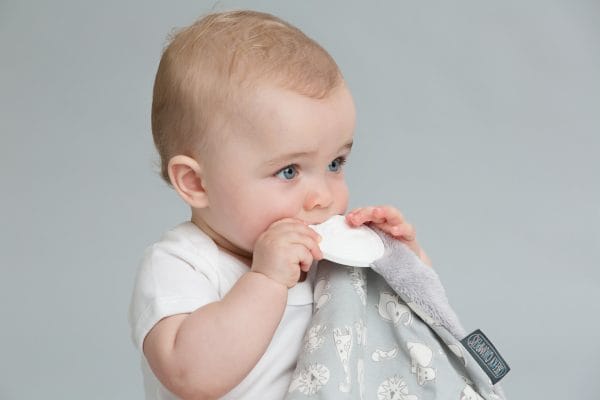When Do Babies Start Teething?
Many parents ask when babies start teething. Teething is a big step in a baby’s life, and it can be exciting but also challenging. This article will explore when babies start teething and what to expect. We will also give tips on how to help your little one through this time.

When Do Babies Start Teething?
![]()
Most babies start teething around six months old. However, some may begin as early as three months, and others might start once they are 12 months old. Every baby is different.
- The first tooth usually appears between 6 to 10 months old.
- By the age of 3, most children have all their baby teeth.
- Boys may start teething later than girls.
It’s important to remember that these are just averages. Your baby might follow a different timeline. If you are concerned, talk to your pediatric dentist.
Signs That Your Baby Is Teething
![]()
How do you know when your baby starts teething? There are several signs to look out for:
- Drooling more than usual.
- Chewing on toys or fingers.
- Swollen, red gums.
- Being fussier than usual.
- Trouble sleeping.
Some babies may also get a slight fever or have loose stools. These symptoms can last a few days before and after the tooth breaks through the gums.
How to Soothe a Teething Baby
![]()
Teething can be painful for your baby. Here are some ways to help soothe the pain:
- Give them a cold teething ring to chew on.
- Massage their gums with a clean finger.
- Offer a cold washcloth to gnaw on.
- Use homeopathic teething tablets if recommended by your doctor.
Keep an eye on your baby while they use these items. Always check with your pediatrician before trying new remedies.
The Importance of Dental Care for Baby Teeth
![]()
Even though baby teeth will eventually fall out, they are critical. They help your child learn to chew and speak properly. They also hold space for adult teeth.
- Start brushing your baby’s teeth as soon as the first tooth appears.
- Use a small, soft-bristled toothbrush and water.
- Avoid giving your baby sugary drinks to prevent tooth decay.
Good dental care from an early age sets the foundation for healthy adult teeth.
Visiting the Pediatric Dentist
![]()
The American Dental Association recommends taking your baby to the dentist by their first birthday or within six months of the first tooth appearing, whichever comes first. Regular dental visits are crucial for maintaining oral health.
- The dentist will check for any early signs of tooth decay.
- They can give you tips on proper brushing techniques.
- They will monitor your child’s dental development.
Regular check-ups help ensure that problems are caught early, making treatment easier and less stressful for your child.
Common Teething Myths Debunked
![]()
There are many myths about teething. Let’s debunk some of them:
- Myth: Teething causes high fever. Fact: A slight fever is normal, but a high fever is not.
- Myth: Teething causes diarrhea. Fact: Loose stools can happen, but severe diarrhea is unrelated to teething.
- Myth: Teething lasts for months. Fact: Each tooth causes discomfort for a few days at most.
Always consult your pediatrician if you need clarification on any symptoms your baby is experiencing.
Foods to Help With Teething Pain
![]()
Certain foods can help ease your little one’s teething pain. Here are some options:
- Cold fruits like applesauce or chilled bananas.
- Yogurt straight from the fridge.
- Chilled carrot sticks (for older babies).
These foods can provide both nutrition and relief for sore gums. Just make sure to supervise your baby while they eat.
The Role of Genetics in Teething
![]()
Genetics plays a role in when babies start teething. If you or your partner teethed early, your baby might too. Conversely, your baby might be the same if you were a late bloomer.
- Family history can give clues about your baby’s teething timeline.
- Talk to family members about their teething experiences.
While genetics can give you an idea, every baby is unique. Always consult your pediatric dentist if you have concerns.
Conclusion
![]()
Teething is a natural part of growing up. Most babies start teething around six months old, but there is a wide range of normal. Look for signs like drooling and chewing to know when your baby starts teething. Soothe their pain with teething rings and gentle gum massages. Remember the importance of early dental care and regular visits to the pediatric dentist.
Understanding teething symptoms and using safe remedies can help make this milestone easier for your little one. Keep an eye on your baby’s health and enjoy watching them grow their first teeth!





